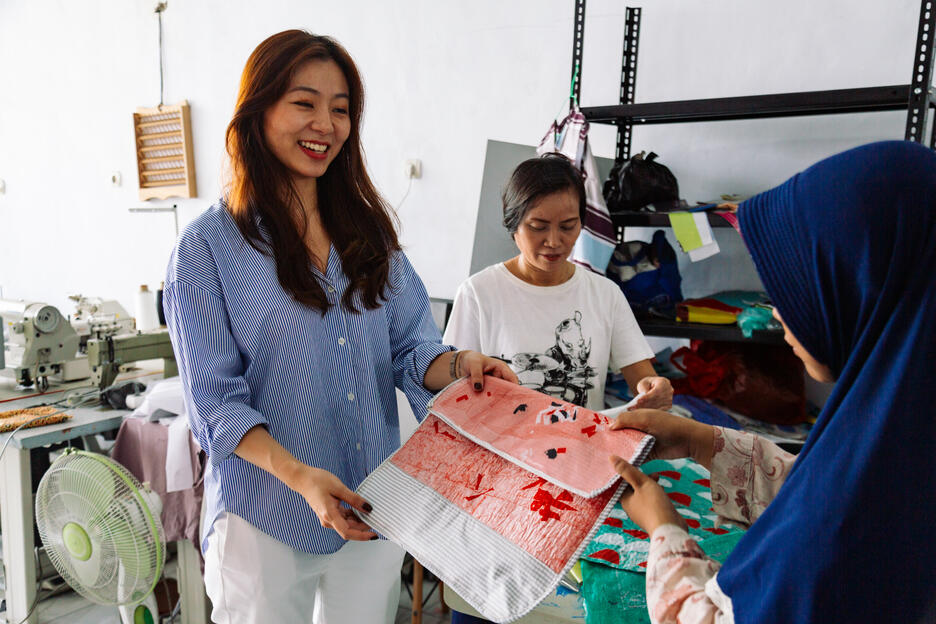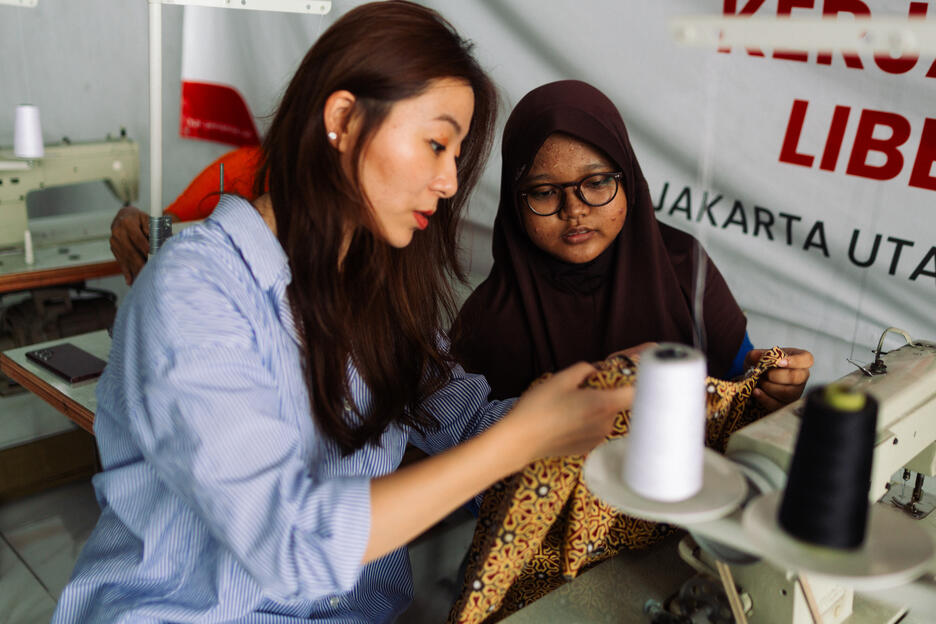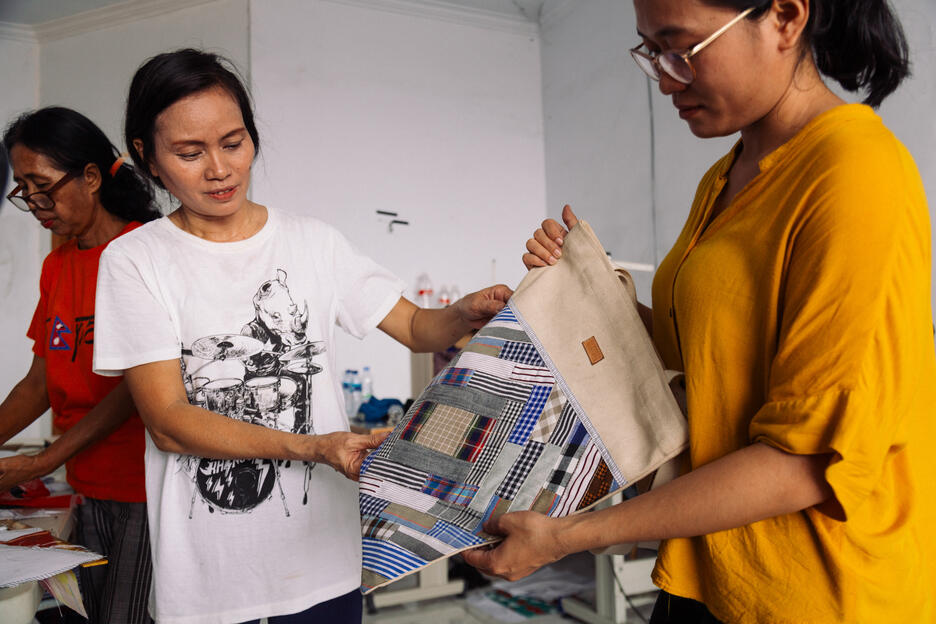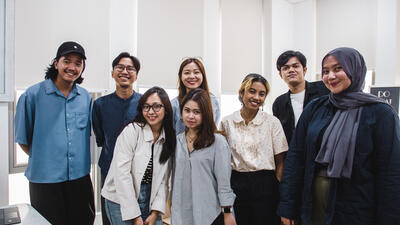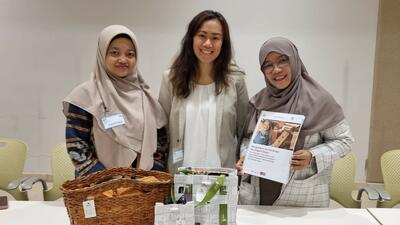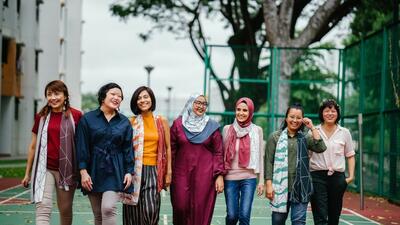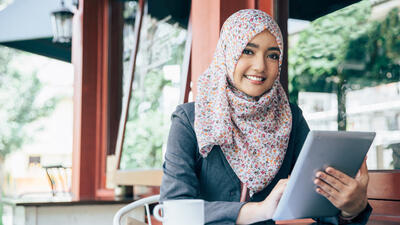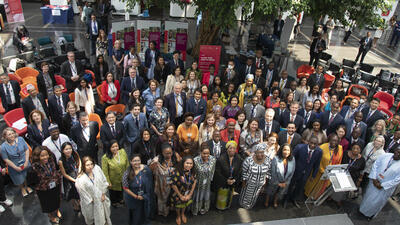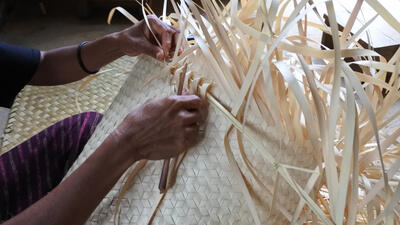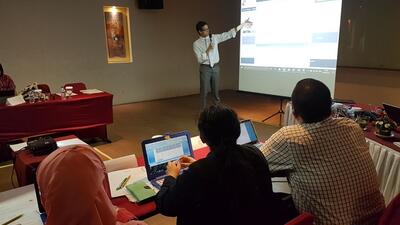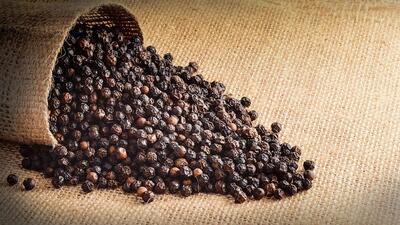
Changing the lives of women, changing whole societies
If you wanted to impact the lives of disadvantaged women and refugees, who are struggling to survive, what would you do? No idea?
Luckily, we have young, inspiring entrepreneurs such as Tamara Gondo, who have found ways to help. Meet the 27-year-old founder and CEO of Liberty Society in Indonesia, a social enterprise of eco B2B products, that aims high and far.
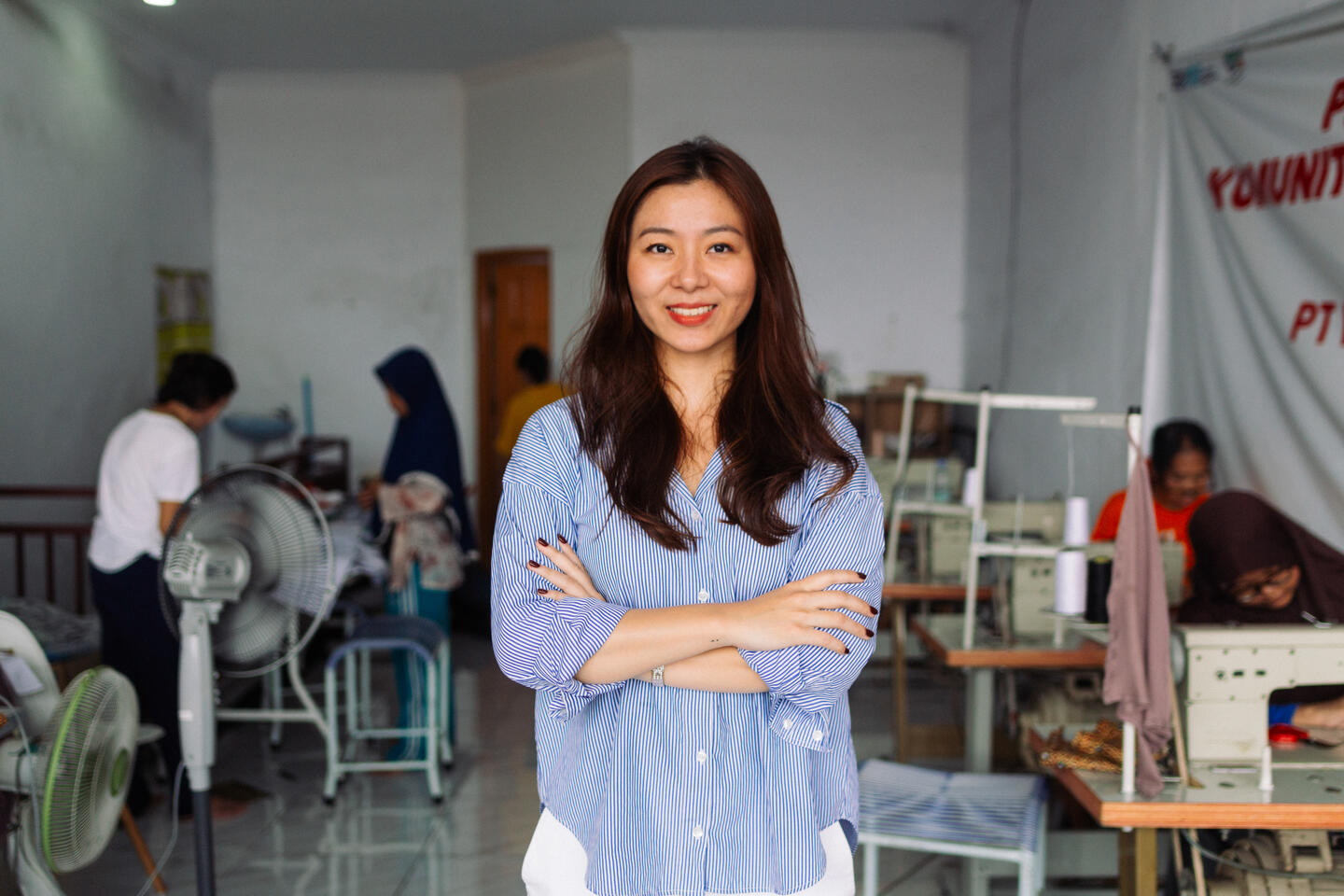
Tamara Gondo already found her true calling in middle school. While visiting a rural community in North Sulawesi, Indonesia, during a missionary trip, she was inspired by the high hopes and big dreams of the other children she met. However, seeing the poverty they were growing up in, she feared their dreams and ambitions would be crushed.
This is when Tamara first became interested in social justice. The young student from Java’s vibrant city of Surabaya decided then and there to start a non-profit to help marginalized communities.
“I wanted to teach people how to fish rather than giving them a fish because I saw just how much education with financial empowerment can change somebody.”
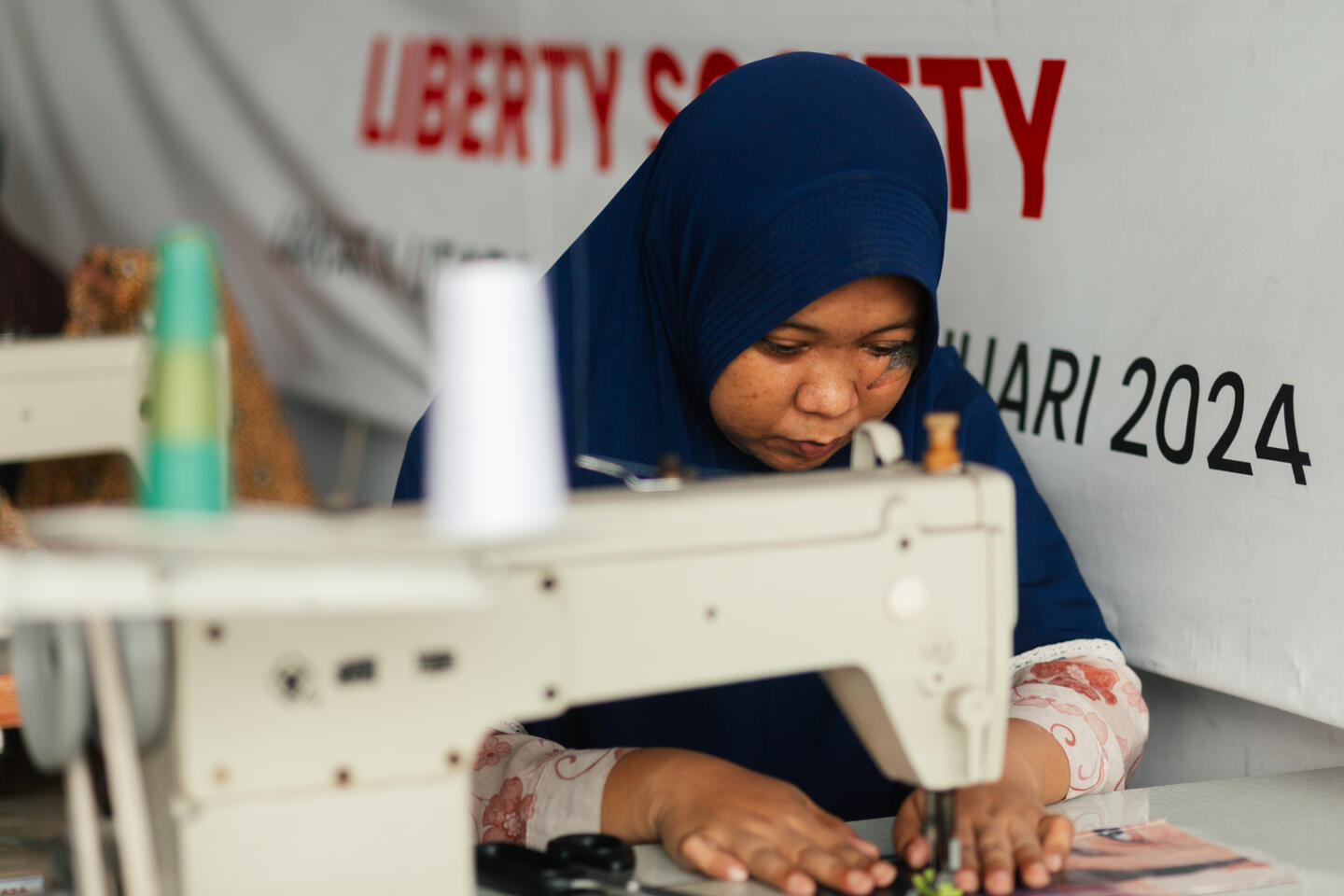
With a double major in sociology and communication studies, and a minor in social justice, human rights and conflict transformation, Tamara founded Liberty Society fresh out of university.
The business that she has been running for the past five years helps women access markets so they can earn better livelihoods, and therefore end their poverty.
Indonesia hosts over 12,200 refugees and forcibly displaced persons from over 50 different countries, with the majority coming from Afghanistan, Myanmar and Somalia. What they urgently need is paid, decent work before they move on to their next chapters.
This is what Liberty Society offers: it specializes in supplying corporations with locally handmade, sustainable clothing and merchandise, sourced from marginalized and displaced women.
The social enterprise quickly expanded its reach to also include Indonesian women working in prostitution rings or wage scavengers who earn less than $2 a day. Throughout five centres spread out on Java Island, Liberty Society has so far supported more than 200 women in developing their handicraft skills, impacting 1,000 communities for the better.
Video
COVID-19 hit right after Liberty Society was founded, testing its resilience. At the same time, however, big corporations were being pushed by markets and consumers to become more sustainable and spend their procurement budget on social issues.
“As this became a trend, things got easier for us. The first year, brands like Uniqlo, Ikea and H&M were interested in our social impact. Then, they expanded their requests, wanting to become ‘green’ and address their waste, which we gladly incorporated in our production cycle, considering how much waste fashion brands produce. Finally, they have been looking at improving their own corporate social responsibility and investing in our training centres.”
After six months they offtake the products produced in these training centres for their corporate needs. A circular economy has formed, much to Tamara’s delight.
And looking back, achieving this circular economy approach has been instrumental to achieving her primary mission: fulfilling the needs of the women. Indeed, Tamara saw that you can’t have social change without environmental sustainability.
“We are proud to work with around 150 companies, who are now more mindful of their waste and carbon production. Through our co-branding, we are reaching and thus educating 10 million consumers worldwide.”
In addition to offering upcycling workshops to employees and consumers, Tamara is proud that the women who they’re training now have the possibility to become independent seamstresses. This makes her business model replicable, Tamara believes, and has much more impact than employing a certain number of women in a factory (which would only have impact on a limited number of employees).
Finally, by including local artisans with their sustainably sourced products in producing gift sets, Liberty Society can share its work with an even wider community.
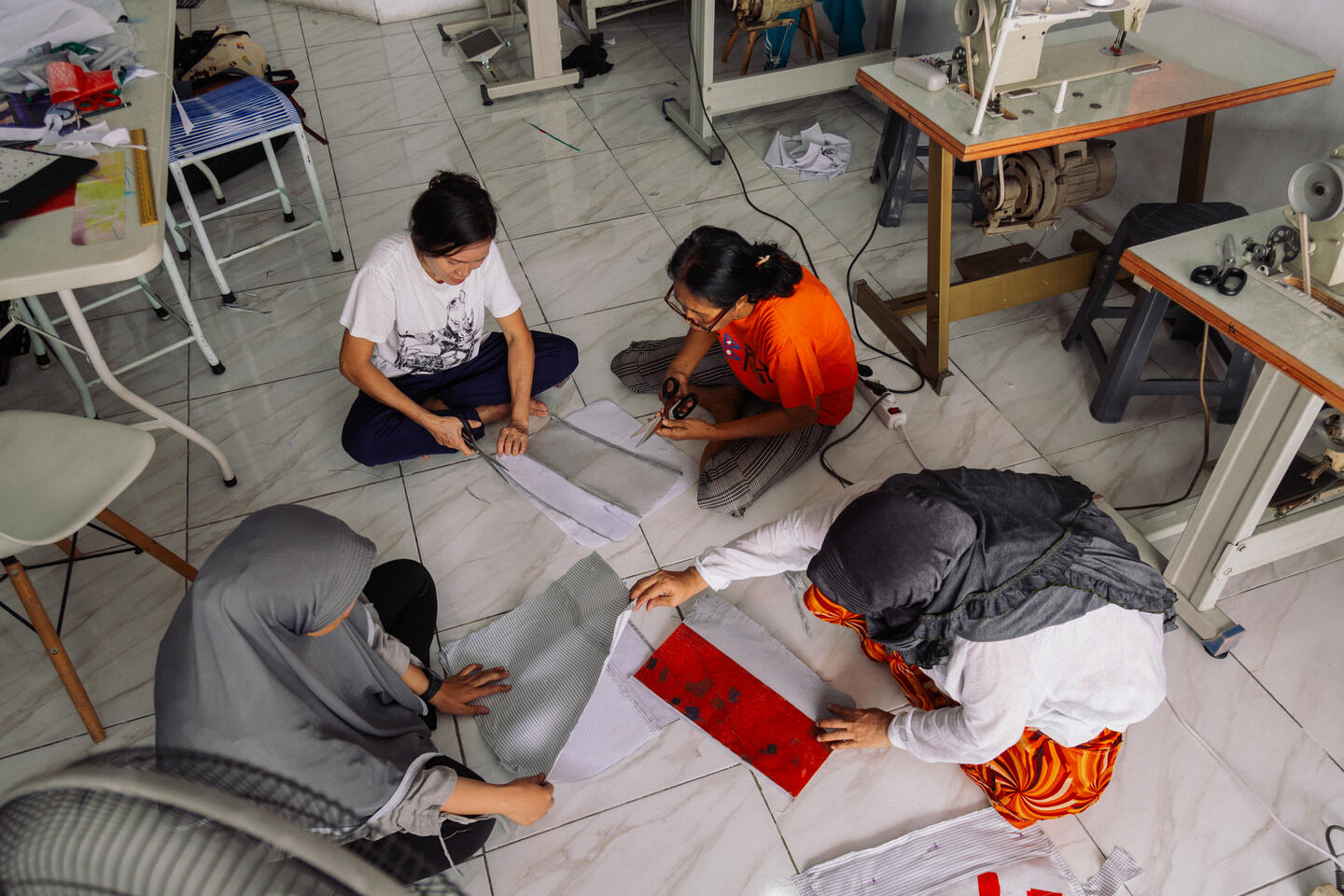
If she had a magic wand, Tamara would create an online marketplace. But as with all start-ups, the funding isn’t accessible yet.
“It is quite rare for social-impact enterprises to get funding compared to technology-driven start-ups.”
Tamara’s hope is to scale up her business approach in communities across South-East Asia to reach 1,000 artisans, and this way access the required funding.
“Our training development programmes where we manage to increase incomes, create high-quality products with a rejection rate of less than 1%, which is excellent in the manufacturing industry– all these are unique. If we could go to more communities, implement a curriculum, help them grow, and market their products, we can finally have the impact we want.”
And this would finally help in supporting the social justice Tamara has been looking for.
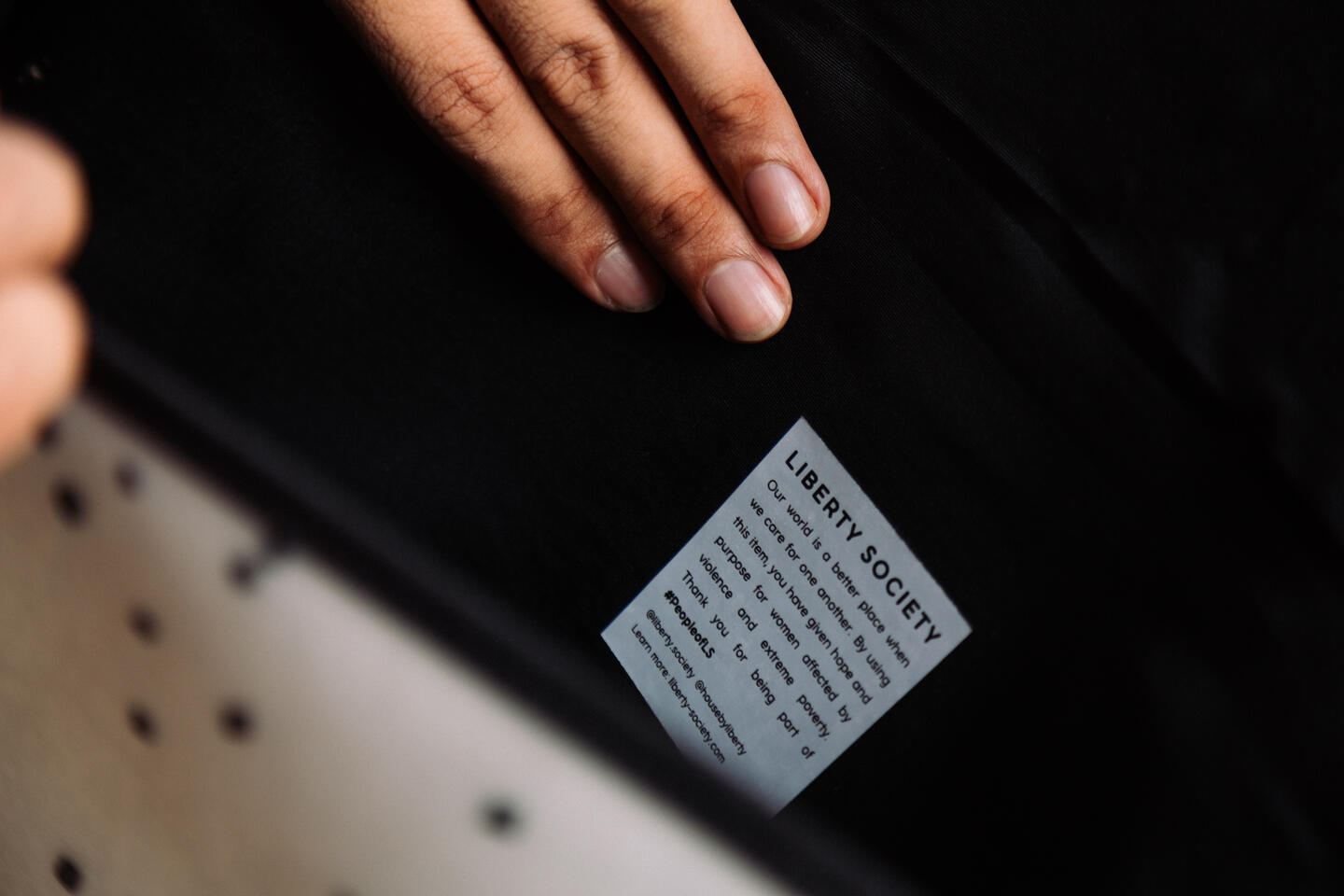
Tamara Gondo has been the finalist of the International Trade Centre’s Youth Ecopreneur Awards in 2023 in the category of Green Business Solutions. From more than 400 applications, she has been selected as one of the top 7 finalist. She has received training in pitching, IP training and coaching by the World Intellectual Property Organization (WIPO), as well as pro-bono legal services by multinational law firm Sidley Austin. The Youth Ecopreneur Awards are organized by the International Trade Centre in partnership with the G20 Global Land Initiative of the United Nations Convention to Combat Desertification, WIPO, Google's Startups for Sustainable Development programme, and Sidley Austin.





